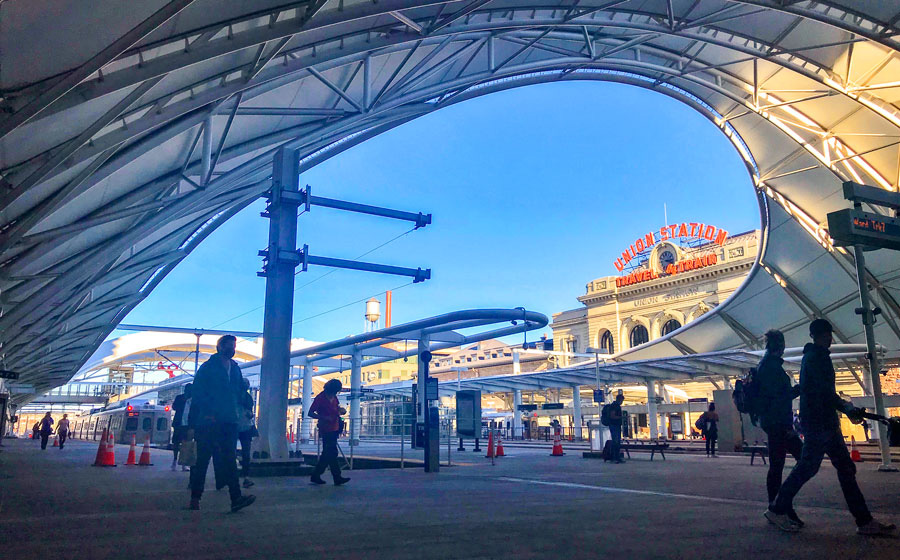Passenger rail service
Could it pass through Douglas County?
Article and photo by Chris Michlewicz

The state has proposed three alignment options for passenger rail service from Fort Collins to Pueblo, all of which would go through Douglas County. Two of the options would mostly use existing RTD corridors and freight train tracks, including rail lines that run parallel to U.S. 85, and would connect with Union Station in downtown Denver. The other would follow the I-25 corridor on the east side and pass through Castle Pines.
A proposal to bring passenger rail service through Douglas County as part of a larger Front Range transit effort could be gaining steam.
The State of Colorado’s Southwest Chief & Front Range Passenger Rail Commission is looking at three possible routes to connect Fort Collins to Pueblo by passenger train. The approximately 180-mile rail line could improve regional travel and help alleviate traffic congestion on I-25.
One conceptual route follows the I-25 corridor on the east side of the highway and would pass through the City of Castle Pines. This route would potentially impact the Castle Rock communities on the east side of the highway as well. It is highly unlikely the train would stop in Castle Pines; the closest stations would be in Lone Tree and Castle Rock, according to Randy Grauberger, project director for the Southwest Chief & Front Range Passenger Rail Commission.
The new rail line would bypass Denver and follow the E-470 corridor before rejoining I-25. The alignment also would not pass through Boulder, which is among the communities most in need of alternative transit options, Grauberger said.
The other two proposed routes would largely use a combination of existing tracks operated by the Regional Transportation District (RTD) for light rail and Burlington Northern Santa Fe (BNSF) and Union Pacific for freight trains, including tracks that run through Castle Rock and just west of the Castle Pines community.
There is still considerable work to be done before any final decisions will be made, including the completion of an environmental impact study, further discussions with the public, state legislators and other stakeholders, and construction cost estimates and funding. The rail commission recently received a $700,000 federal grant from the Consolidated Rail Infrastructure and Safety Improvements Program for service development planning.
Amtrak has identified the Front Range as an area that could benefit from passenger rail, Grauberger said, adding that President-elect Joe Biden’s support of passenger train service could increase the availability of federal funding. Amtrak and BNSF have been part of the conversations about Front Range rail service and have expressed a willingness to partner on projects.
“Douglas County has heard and been involved with numerous meetings about this over many years,” stated County Commissioner Roger Partridge. “The recent proposal has many components to examine that have yet to be vetted.”
Although Grauberger indicated that initial survey responses from the public have been positive, communities along the I-25 corridor that could possibly be impacted by the plans have yet to weigh in on the discussion, as everything to this point has been entirely conceptual.
City of Castle Pines Councilmember Deborah Mulvey, who serves as the council delegate for the Denver Regional Council of Governments, has attended recent meetings related to the central corridor of the conceptual alignment along I-25.
Mulvey expressed concerns about possible impacts to the Castle Pines community, including noise from train horns at grade crossings, steep changes in grade between Castle Rock and Lone Tree that could affect travel speed, safety issues at crossings, and conflicts with future expansion plans for I-25, among others.
For now, the City of Castle Pines is reserving judgment until more information is made available. “Our goal is to make sure Castle Pines is at the table,” said Mulvey.
There are still significant challenges for the state to address, including a possible ballot question related to TABOR, and determining whether a portion of funding would be derived from sales tax, boarding tax, lodging tax, vehicle registration fees or another source, Grauberger said. Those overseeing the proposal are researching previous failed efforts to expand passenger rail service on the Front Range to avoid potential pitfalls.